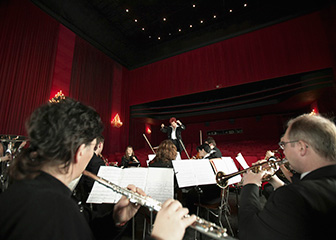Summary

| Quick Facts: Musicians and Singers | |
|---|---|
| $22.39 per hour | |
| High school diploma or equivalent | |
| None | |
| Long-term on-the-job training | |
| 176,200 | |
| 10% (About as fast as average) | |
| 17,900 | |
What Musicians and Singers Do
Musicians and singers play instruments or sing for live audiences and in recording studios. They perform in a variety of styles, such as classical, jazz, opera, rap, or rock.
Work Environment
Musicians and singers often perform in settings such as concert halls, arenas, and clubs. They often work in religious organizations and performing arts companies; others are self-employed.
How to Become a Musician or Singer
Educational and training requirements for musicians and singers vary. There are no formal education requirements for musicians and singers interested in performing popular music, but those interested in performing classical and opera typically need at least a bachelor’s degree.
Pay
The median hourly wage of musicians and singers was $22.39 in May 2010.
Job Outlook
Employment of musicians and singers is expected to grow 10 percent from 2010 to 2020, about as fast as the average for all occupations. Expected growth will be due to increases in demand for musical performances. However, strong competition is expected for jobs because of the large number of workers who are interested in becoming musicians or singers.
Similar Occupations
Compare the job duties, education, job growth, and pay of musicians and singers with similar occupations.
O*NET
O*NET provides comprehensive information on key characteristics of workers and occupations.
Contacts for More Information
Learn more about musicians and singers by contacting these additional resources.












